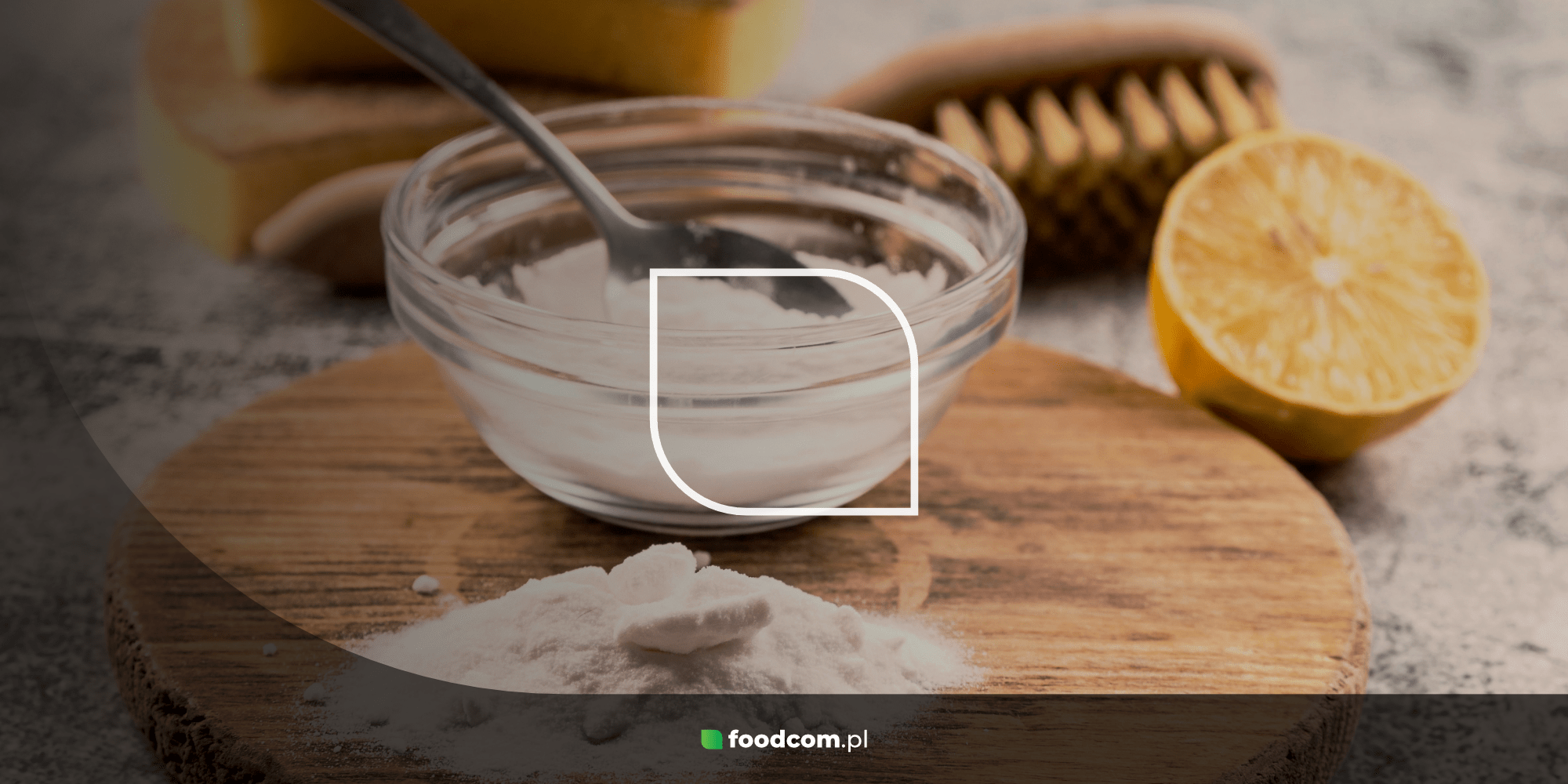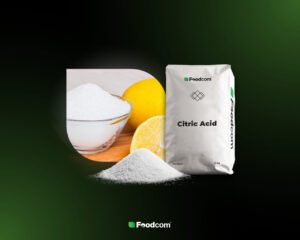- Characteristics and origin: citric acid (E330) is a natural chemical compound found in fruits and also used in synthetic form.
- Properties: lowers pH, prolongs shelf life of products, has bleaching and exfoliating effects.
- Uses: used in the food, cosmetic and pharmaceutical industries, and as a cleaning agent and feed preservative.
- Safety: citric acid is safe in moderate amounts, but excessive use can lead to irritation.
What is citric acid?
Citric acid (E330), also known as citric acid, is an organic chemical compound classified as an AHA, or alpha-hydroxy acid. The formula of citric acid is C₆H₈O₇. It occurs naturally not only in lemons, as the name might indicate, but generally in fruits such as oranges, black currant, strawberries or pineapple. The acid is also found in most organisms – it is an important intermediate product of the Krebs cycle (also called the citric acid cycle), where it plays an important function during the carbohydrate-burning process.
It can also be produced chemically – mainly by citric fermentation, using enzymes and strains of bacteria, most commonly Aspergillus niger.
Properties of citric acid
Citric acid comes in the form of white, odorless crystals. However, it has a rather pronounced sour taste.
It has a number of useful properties. First, when added to products, it lowers their pH. Such acidification makes the articles last longer. The lower pH also makes the vitamins, trace elements or antioxidants that are contained in food products more stable and better absorbed. Citrus acid, of course, also has the effect of making products taste more acidic.
It helps maintain the original color of products, such as fruits and vegetables. It also has a bleaching effect.
Citric acid is considered a safe substance. If consumed in moderation, it does not cause any harmful side effects.
Uses of citric acid
It is used in many industries. Due to its properties – its effect on the pH, taste, color and shelf life of products – it is most often used in the food industry.
Citric acid is also usedin cosmetics , due to its exfoliating, brightening and pH-regulating properties, which help improve skin condition, reduce the appearance of discoloration and promote skin hydration. In addition, it is used in the production of cleaning products and in the pharmaceutical industry as an additive to medicines, where it acts as a buffering agent, supporting their effectiveness.
Besides, citric acid has found its use as an additive in animal feed – it has a preservative effect on food, and also improves phosphorus absorption and feed flavor, which in turn leads to increased feed intake.
Citric acid in food
It is a food additive and appears on labels as E330. It is excellent at extending the shelf life of products and helps preserve their color. Of course, it also makes food retain the right acidity and is an excellent preservative. Moreover, it has binding and thickening properties, so it is added to sauces, jams or jellies.
Citric acid is also used in the confectionery and baking industry, and is added to baking soda as a raising agent for cakes. As an acidifier, it is also an important ingredient in cheese, beer or wine production.
Citric acid does not only appear as an ingredient in human food, but also in animal feed. Supplementation with this ingredient has shown positive effects on improved performance and bone mineralization in broilers and better growth in weaned piglets. With the addition of citric acid, feed not only stays fresher for longer, but is more palatable, thus increasing consumption and animal weight.
Citric acid in cosmetics
The most popular property of citric acid used in the production of cosmetics, is its ability to whiten the epidermis. This is why it can be found as an ingredient in products for people with discoloration and uneven skin tone.
Citric acid’s effect on the skin also manifests itself in anti-aging prevention, helping to smooth out wrinkles – it affects the number of glycosaminoglycans contained in the skin, whose job is to fill the intercellular spaces. This keeps the skin moisturized and firm.
It also has a gentle exfoliating effect, so it appears as an ingredient in scrubs, enhancing the effect of other acids used. It can be used in hair care products – lowering the pH makes hair less electrified, shinier and smoother.
Citric acid in the pharmaceutical industry
Citric acid is widely used in the pharmaceutical industry, where it serves primarily as a buffering and stabilizing substance and as an acidity regulator. Thanks to its pH-regulating properties, it is used in various forms of drugs, such as oral preparations, eye drops and injectable solutions to maintain their chemical stability and increase the bioavailability of active ingredients. In addition, citric acid acts as a preservative, protecting pharmaceutical products from microbial growth and prolonging their shelf life. Its ability to bind metal ions, resulting from its chelating properties, prevents the negative effects of these ions on the active ingredients of drugs. In this way, citric acid supports the effectiveness and shelf life of many medical preparations, making them safer and more effective.
Citric acid as a descaler and cleaner
Citric acid is not only an ingredient in cosmetics and food, but also a popular cleaning agent that is used in every household. In powder form, it is ideal for cleaning various surfaces and for descaling kettles and other appliances. To effectively get rid of limescale, simply add a few teaspoons of citric acid, pour in water and then boil the water in the kettle – this process makes the limescale dissolve, leaving the device clean and ready for further use. It can also be used to descale dishes and as an ingredient in cleaning products. Thanks to its versatile cleaning and descaling action, it is valued in every household, both for keeping dishes clean and for effectively removing deposits.
Harmfulness of citric acid
Acid is considered a safe substance for use in the food, cosmetic and pharmaceutical industries, provided it is used in moderate amounts. However, excessive use can lead to some health problems, such as irritation of mucous membranes, especially in sensitive individuals. If it comes into contact with the eyes, the acid can cause burning and redness. Ingestion of too much E330 can lead to irritation of the gastrointestinal tract, causing abdominal pain or discomfort. In people with sensitive skin, citric acid in high concentrations can cause irritation, so it is worth exercising caution when using cosmetics with its content, especially if your skin is prone to allergies or damage.
Our Sales Support team assists our Business Partners in conducting business transactions efficiently and effectively to ensure the highest quality of service for all our Business Partners. Our logistics team will take care of transportation, and our finance department will be responsible for all matters related to the financial part of the transaction.











